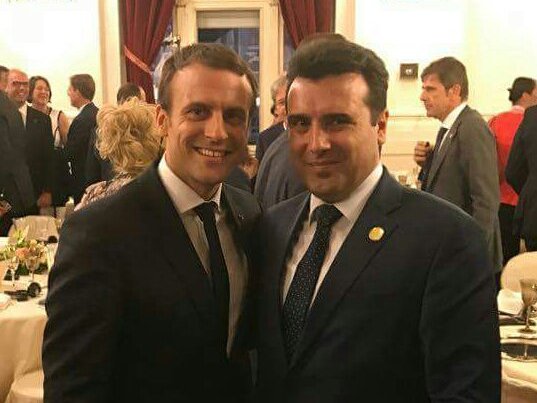Did French President Emmanuel Macron tell the Macedonian delegation what to expect, whether he had lied or been blinded by the date we “received last year” they did not want or could not understand what did the man say? Unfortunately, these dilemmas will remain unanswered, and the facts will continue to speak the opposite of what the Macedonian authorities said and believed.
Only a month and a half ago, former Foreign Minister Antonio Milososki said in a televised debate with the Prime Minister’s special adviser Bojan Maricic what methodology France is preparing and that EU accession will now be delayed rather than accelerated.
The new methodology for EU enlargement, proposed by France, projects partial membership and 7 stages of membership for Macedonia, Serbia, Albania, Montenegro, Kosovo and BiH. Membership is foreseen as a rigorous, gradual and slow process, but with more specific support throughout the process, through partial access to instruments from joint EU projects, and access to a smaller percentage of structural funds could be possible. Full- fledged membership remains an option and an end goal, but this methodology would take about 10-15 years from the start of negotiations to full EU membership, Milososki warned.
Maricic, meanwhile, claims that at a meeting in Sofia last year, Macron told him and outgoing Prime Minister Zoran Zaev quite the opposite.
President Macron has told us that France’s idea is for the negotiations not to last indefinitely, as they have assessed the process so far with Serbia and Montenegro. Serbia and Montenegro have been negotiating for 7 years, ad they are nowhere near the end of the process. If they were guided by accession with Croatia and previously with Slovenia, they would have to end and have the accession and ratification agreement closed. All lessons learned by Member States and the EC are incorporated into each subsequent accession so it should come as no surprise that there are new ideas that should enhance monitoring. But in my opinion, it can be a chance for us to compete with the countries of the region and show how much capacity it really has, said Maricic.
However, the document sent by France to EU member states concludes the opposite of what Maricic claims. France calls for a “renewed approach” in the enlargement process to the Western Balkans. The European Commission is also required that the new methodology in the accession process, which would be applied in opening accession negotiations with candidate countries, is issued by January 2020.
Closer ties with the European Union are the only way for these countries to consolidate, based on the rule of law and open and pluralistic societies that are concerned with their economic and social development, the French document said.
According to France, such a renewed approach should be based on four principles: gradual compliance, stricter conditions, more concrete benefits and reversibility.
France demands that the whole process of accession be “gradual and stimulating”.
Once negotiations are opened, the integration process will no longer be based on the opening of a number of thematic chapters, but rather on several successive stages, which will form coherent EU policy blocks and schemes, taking into account the specific characteristics of each candidate, where appropriate, the document reads.




Comments are closed for this post.